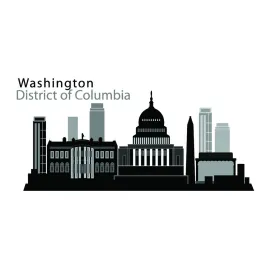On January 11, 2021, Muriel Bowser, the Washington, D.C., mayor, signed the D.C. Ban on Non-Compete Agreements Amendment Act of 2020 (the Act). In doing so, the District follows the recent trend set by other states, including Oregon, Washington and Massachusetts, that are subjecting noncompetes to intense scrutiny. D.C.’s Act goes much further though, and once in effect will be one of the broadest limitations on such agreements in the country. At this point, the Act’s precise effective date remains unclear, since it is tied to congressional review and the enactment of the next budget cycle.
The Act bans private employers “operating in the District” from requiring “an individual who performs work in the District on behalf of an employer” to enter into noncompete agreements and nullifies such agreements entered into following the Act’s as-yet-undetermined effective date. The Act does not retroactively apply to existing agreements. Importantly, although the Act is clear about its applicability to employees who are physically located in Washington, D.C., it arguably leaves open the question of whether it applies to employers located outside of the District that have employees who are not based in the District, but on occasion work there.
The Act contains very few exceptions, only for volunteers, casual babysitters, laypersons appointed to or elected to positions in religious organizations who are engaged in religious functions, and certain highly compensated licensed physicians. The latter category of employees may enter into noncompete agreements, but only if the employer follows specific procedural requirements. In addition to these limitations, the Act does not apply to noncompetes applicable to the sellers in the context of a sale of a business.
Notably, unlike even California, which is among the most restrictive jurisdictions presently in terms of its employee noncompete ban, the Act reaches beyond post-employment restrictive covenants to workplace policies and agreements that prohibit employment with other entities during employment. Such “anti-moonlighting” policies are common fixtures of employee handbooks, codes of conduct and conflicts of interest policies, as well as employment agreements and offer letters. The Act explicitly permits the use of nondisclosure policies and agreements that protect an employer’s confidential and proprietary information.
The Act also contains a prohibition on retaliating against workers who complain of violations of the law, including those who refuse to sign a noncompete. It also provides for a private right of action, as well as potential administrative penalties, in the event of alleged violations.
Employers operating within the District will need to provide specific written notice to their workers within 90 days of the Act’s effective date. Thereafter, employers will have to provide such notice within seven days of a worker’s hiring or within 14 days following the written request by a worker for such. The Act does not contain posting requirements.
Although the Act is not yet effective, and the mayor’s office is expected to provide further guidance, given the Act’s likely impact on even basic employee policies through its anti-moonlighting restrictions, employers should review their existing policies and form agreements to ensure compliance with the Act’s prohibitions.






 />i
/>i

